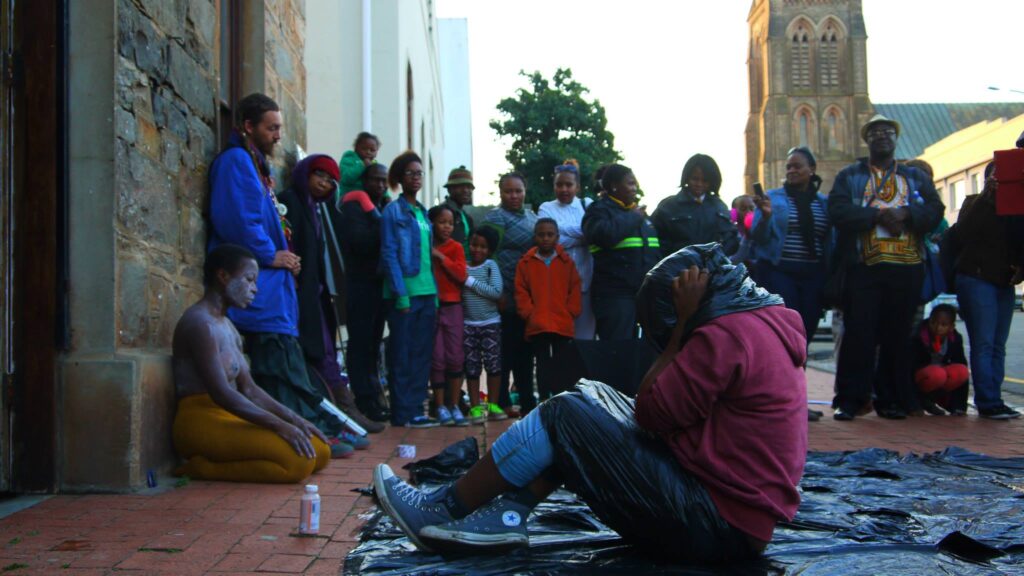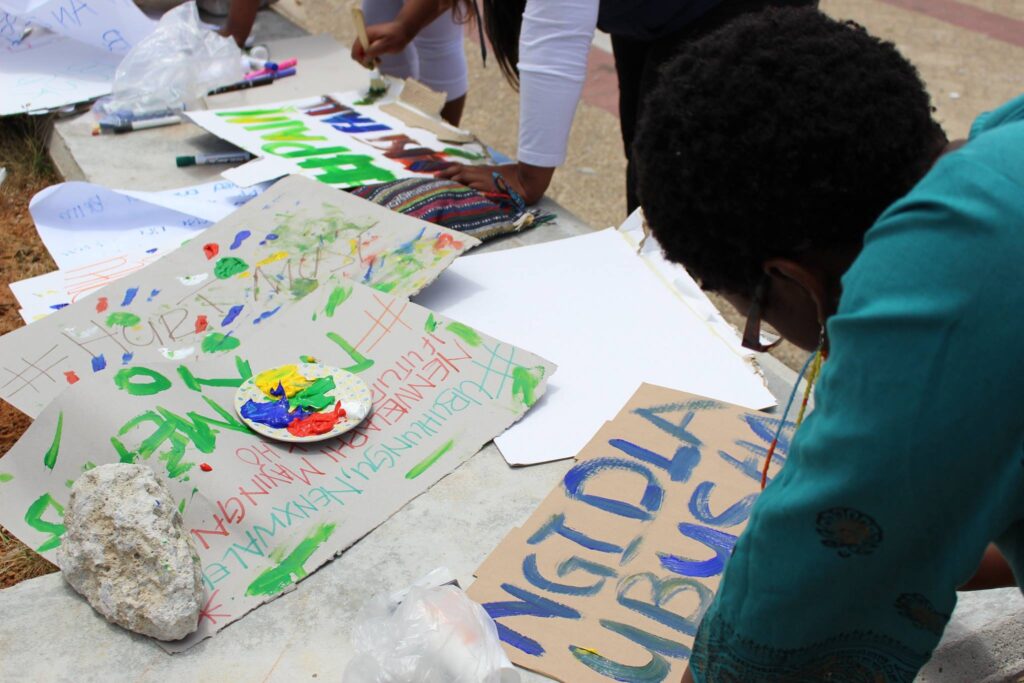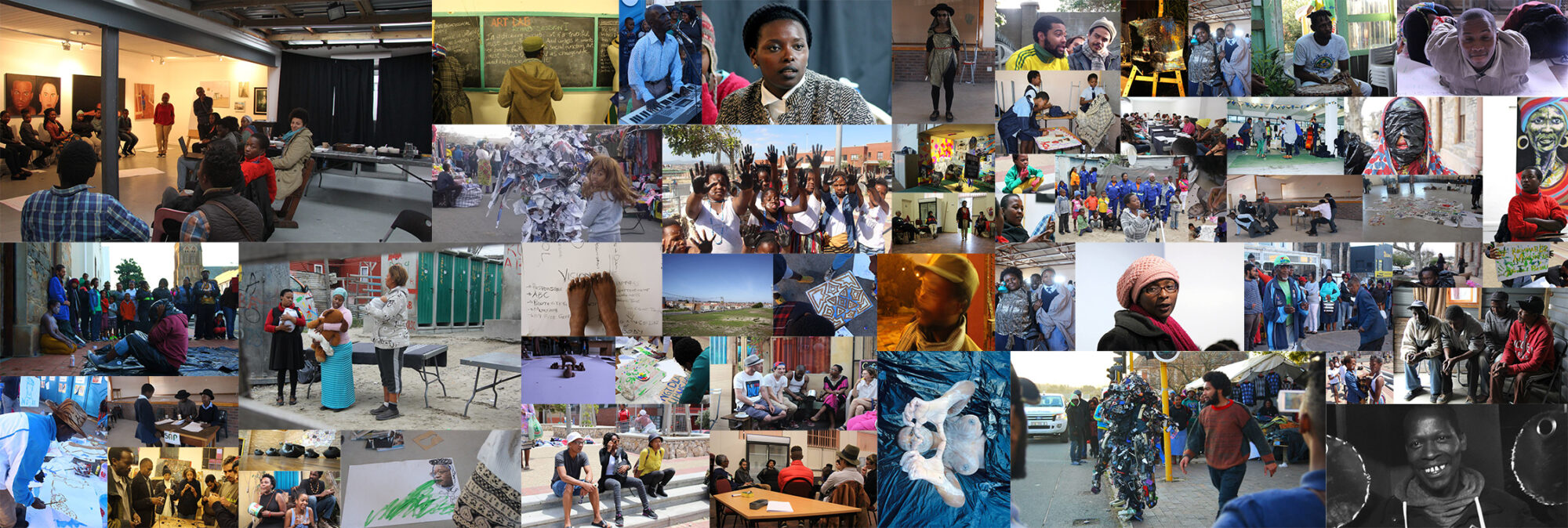Freespace as a public intervention
In its original conception, Freespace is a pop-up intervention, an open platform for interactive and spontaneous expression. An area is designated, art materials are provided, musical instruments, props, costumes and other means of performance and/or creative engagement are made available. Participants are encouraged to “do something” – anything – so long as it does not derail the process. These sessions are aimed at the general public.
There is an emphasis on the breaking intergroup boundaries, such as the audience/performer relationship, and the facilitator/participant dynamic. The project seeks to disturb binary and role designations, encouraging participants to imaginatively and psychologically move beyond everyday relations of difference and power.

First Freespace public intervention held in Makhanda during the National Arts Festival, July 2015
At the center of our conception of Freespace is the idea of individual creativities coming together towards the forging of an organic collective expression. As with musical improvisation, the process relies less on the technical ability of participants, and more on their being in touch with the energy of the moment, the energy brought forth by the space and the people occupying it.
Freespace seeks to harness the power of bodies and spirits in space to foster collaboration-driven creative energy. It demonstrates and draws on the possibilities of art and art-making as paths for social cohesion.
In these ways, Freespace is also implicitly interdisciplinary. It is a playful environment where disparate disciplines and perspectives intersect, producing something complicated but nevertheless whole.

3rd Freespace public intervention held as part of the Harare Academy of Inspiration in Khayelitsha, November 2015
Freespace depends to a large extent on the engagement of what we call “insiders”. These are participating facilitators who, cognizant of the objectives of the process, guide the session, working to draw members of the public into the process. They lead by example.
Freespace is not opposed to the sharing of pre-crafted material; it is an alternative “stage” where contributors are enabled to explore their work and ideas in a way that is fundamentally interactive.
Freespace as pedagogy
In the past we have thought of and used Freespace as a public intervention [1] and an educational tool [2]. In both cases it is basically an event, a momentary experience.
Freespace with students at Mfuleni School High School held as part of There Was No Such Thing, May 2016
Moving forward, we have directed our energy towards an idea of Freespace as forming a philosophy or counter-system through which education and social growth might take place. Freespace in this context becomes a form of practice informing inherent pedagogical relationships, and the reinterpretation of everyday knowledge and principles as pedagogical knowledge. In short, we seek to explore the possibilities of Freespace as pedagogy.
This approach involves an extension of the idea of the classroom to areas that would not traditionally be considered educational. It is envisioned that our general work and interactions as an organisation may equally include the application of Freespace principles. This speaks to an idea of life as education.
Presently we are developing this new direction through a process of coordinated study and reflection.
[1] Refer to the section above: “Freespace as a public intervention”.
[2] Refer to There was no such thing.









